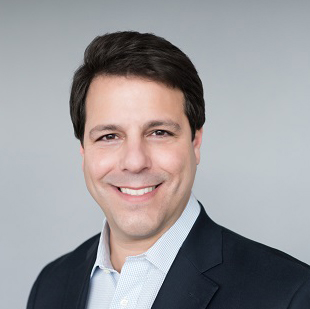Post-pandemic workplaces will be coming into focus over the next few months.
Deltek, a provider of software solutions for project-based businesses, has a goal of starting to bring some employees back into the office starting Oct. 1, opting for a largely hybrid strategy. In-person days will be determined by teams, with significant attention to the technology that will power at-home productivity.
To make that setup successful, says Ed Hutner, senior vice president of HR, the organization is concentrating on answering three primary questions: What will the physical workplace look like? How do we work? And, how do we support our employees going forward?
For Hutner—who held HR leadership positions with the New York Stock Exchange, IBM, Cognos and USA Mobility before joining Deltek in 2014—many of those answers center on one concept: the virtual mindset.
HRE: You’ve talked a lot about the need for companies to develop a virtual mindset. How have you sought to ingrain that at Deltek?

Ed Hutner
Hutner: For us, it’s not about the quantity people do, it’s about the quality. Getting into a virtual mindset is trusting our employees, working with our managers to have them stay engaged with our employees through various technology. It’s about getting the value out of employees—getting done what needs to get done, not looking at how many widgets they’re making on a daily basis. The virtual mindset allows us to think differently. We don’t have to see a person on a daily basis to say that we know they’re doing something. It’s really trying to build that ability, that muscle memory, around allowing our employees to feel empowered to do what they need to do—and to have managers acknowledge that.
HRE: Besides where employees are working, what do you think will be the biggest, lasting change to Deltek’s people strategy from the pandemic?
Hutner: Our ability to get talent anywhere. Also, this is going to free managers up. There’s always been this feeling of, “If I can’t see somebody working, work isn’t getting done.” But the last 16 months have proven that doesn’t have to be the case.
See also: How to embrace the new world of hybrid work
HRE: How has Deltek zeroed in on organizational purpose throughout the pandemic?
Hutner: With what’s happened over last 16 months, a lot of companies weren’t doing certain things and had to pivot. For us, we’ve always been a company that’s socially conscious and responsible. We do live our values. We look at our values on a daily, weekly, quarterly basis in terms of how we recognize, promote, drive careers forward here. What happened last year with George Floyd and the spotlight on DE&I, we’ve always been focused on [DE&I] but that allowed us to pursue some more avenues, like around our ERGs. We brought in subject matter experts on inclusion and diversity. We’ve had doctors come talk about employee wellness and wellbeing, and experts on financial wellness. We doubled down on what we were already doing. With everybody working at home and feeling a bit trapped—not having boundaries between work and home—we wanted to be able to provide support for all of our employees and really explain that that is what we’re all about. Obviously, we’re in business to make money, but we want our employees to know what we do here and how they can grow their own career as we work toward this purpose.
HRE: Throughout your time in the HR industry, how has the HR role itself evolved?
Hutner: I don’t want to age myself but I’ve been in HR over 25 years. When I first came in, HR as a function was pretty standalone. We had recruiting, benefits, compensation but, over the years, there’s been a transformation, especially on the leadership development and talent sides. There’s also been a transformation from the CEO and C-suite level about what HR can do to drive the business, drive revenue, make business stronger. Employee engagement wasn’t a term when I started in HR. Now, there’s a real understanding that employee engagement can drive productivity and revenue but also retention rates and getting the best talent on board. We’re also seeing a lot of HR people becoming CEOs now in their organizations. It’s a career track that more and more progressive companies are recognizing that their CHRO can move into.
Read more Insights from a CHRO here.
HRE: If you hadn’t gone into HR, where do you think your career would have taken you?
Hutner: I was planning to go to law school after college but I thought, let me take a year and work. So, I probably would have gone to law school—and been an unhappy attorney.
HRE: Is there any HR advice you got early in your career that has stuck with you?
 Hutner: The first was the importance of getting a mentor. I was very lucky that at my first job—at nonprofit Big Brothers Big Sisters—there was a wonderful human being who put me in touch with someone in an HR group who, out of sheer kindness, became a mentor to me. That’s how I got into HR. The other piece I’d say is to try to find an area you can become—not necessarily an expert in—but very knowledgeable about. Being an HR generalist is a wonderful thing but being the go-to person for something in HR—whether it’s recruiting, leadership development, leveraging remote work—is a really good idea.
Hutner: The first was the importance of getting a mentor. I was very lucky that at my first job—at nonprofit Big Brothers Big Sisters—there was a wonderful human being who put me in touch with someone in an HR group who, out of sheer kindness, became a mentor to me. That’s how I got into HR. The other piece I’d say is to try to find an area you can become—not necessarily an expert in—but very knowledgeable about. Being an HR generalist is a wonderful thing but being the go-to person for something in HR—whether it’s recruiting, leadership development, leveraging remote work—is a really good idea.
HRE: Outside of work, what are you passionate about?
Hutner: I have three kids and try to do a lot with my family. We do a lot of traveling and try to go to places beyond the area where we live. It hasn’t been easy lately but I love going overseas to learn new cultures and see new places.
Click here to register for the HR Tech Conference to learn how leading employers are building tech strategies into their post-pandemic workplaces.